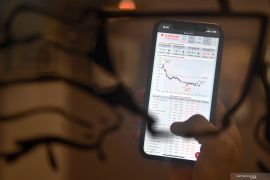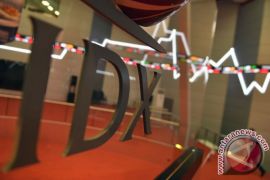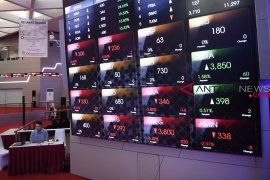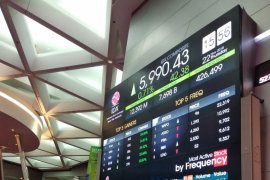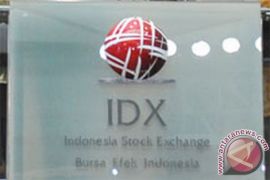The index of the Indonesian Stock Exchange (BEI) slid 0.14 percent to 5,078.52 points with the index of 45 most liquid stocks down 0.20 percent to 866.55.
"Indonesian economic data of September and October reflected economic slowdown giving a negative sentiment to the stock market," Head of Research of Valbury Asia Securities Alfansyah said.
Alfansyah said the countrys trade balance in September was marked with a deficit of US$270.3 million and inflation in October rose to 0.47 percent from 0.27 percent in the previous month.
The market players are also awaiting the government decision on the price of subsidized oil fuel (BBM), he said.
The government has indicated that BBM price hike is imminent but gave no date. The market favors immediate decision on the price hike.
Externally , negative sentiment came from China with slowdown recorded in non-manufacturing sector.
Regional markets such as Hang Seng, KOSPI and Straits Times recorded a decline in index.
Meanwhile the national currency rupiah extended losses in value against the US dollar in the first minutes of trading on Tuesday.
In interbank transactions rupiah traded at 12,122 per dollar weakening from earlier level of 12,090 per dollar.
"The rupiah lost more value on deficit in the countrys trade balance," financial market observer from Bank Himpunan Saudara Rully Nova said.
Rully said the deficit in two successive months caused fears among market players about the countrys economic fundamental.
"The economic fundamental factor will continue shadow the rupiah movements," he said.
Samuel Sekuritas economist Rangga Cipta said the US dollar gained over the majority of global currencies in Asia including rupiah with the improvement of that countrys manufacturing data and construction spending .
In addition the decline of Chinas and euro countries manufacturing indices added to the sentiment strengthening the US dollar, Rangga said.
"The US dollar still has room for rising further in value against rupiah," he said.
However, the dollar rise would likely be curbed with the continued inflow of foreign fund invested in Indonesian state bonds.
"The inflow is fairly strong to the bond auction market defending the national currency," he added. (*)
Editor: Heru Purwanto
Copyright © ANTARA 2014


